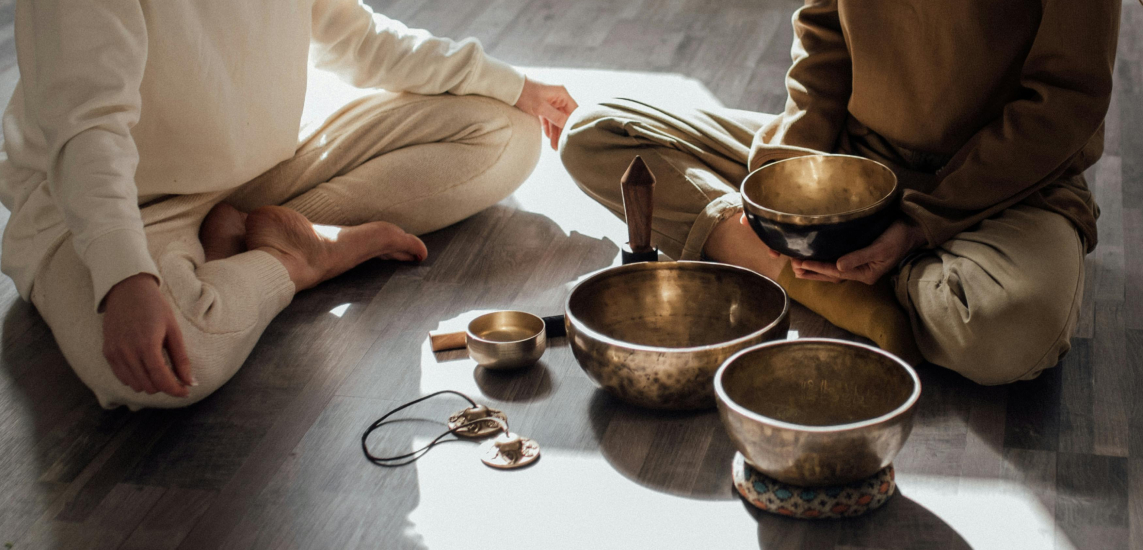In this article, Dr. Candice Creasman explores boundary violations and why boundaries are a source of discomfort and spiritual confusion.
Boundary Violations Are Inevitable
Show of hands: Who has been mistreated by someone, had the urge to call them out, and then immediately heard the voice of spiritual wisdom in their heads say, “turn the other cheek, take the high road, abide in equanimity?” Then you stuffed your rage in a secret place, smiled and walked away.
Ignoring the hurt we accumulate as a function of being in human relationships can grow resentment, diminish our self-respect, and leave us feeling disconnected. Boundaries are the fabric of our relationships with others and help us ensure we are treating each other with respect and love. Boundaries are crossed when someone does something that has a negative impact on us. Because we can’t read minds, boundary violations are inevitable and often trigger those same negative emotions we are trying to overcome through spiritual practice.
Why Boundaries Are Hard
1. Boundary Violations Are Ego Fuel
Whether a friend is constantly running 30 minutes late to all your get-togethers or your 15-year-old is rolling their eyes at their curfew, boundary violations can trigger everything from mild irritation to blinding rage. Why? “Because it’s personal!” cries the ego. Feelings of disappointment, sadness, and frustration often result when someone has crossed a boundary. All of these emotions are potent fuel for the machinery of the ego, which operates under the assumption that people do things to us based on how they feel or think about us. Ego math is inherently self-centered, and fails to take into account other factors that impact other people’s behavior.
Once we personalize someone’s behavior (make it about us), it becomes difficult to check the situation out objectively. Emotion mind triggers urges to react and secondary emotions (emotions about emotions) such as guilt, making it less likely that we will be effective at addressing the boundary violation that started this cascade of inner experiences. Rather than calmly addressing the person’s behavior, we react to our assumptions about their intentions, which can lead us to all sorts of problematic responses such as being accusatory, becoming defensive, or shutting down altogether to avoid the pain of confrontation.
What To Do About It
If you find yourself frequently framing boundary violations in terms of judgments about intention, try bringing some mindful awareness to the impact these thoughts have on your peace of mind. It’s fine if this turns out to be a post-mortem initially—we hone our ability to notice urges before we act by examining behaviors that have already happened.
Reflect on a time someone hurt your feelings or didn’t follow through. When you added the thought “this person must think I’m ______________” or “this person feels______________ about me,” what happened in your body? What sensations started to arise? There are likely also memories of similar instances with other people in totally unrelated situations that showed up as well.
Bringing mindful awareness to the personalization process helps us build motivation to do it differently. The connection between personalizing and increased suffering becomes undeniable.
After we commit to being mindful of personalizing, we can shift our focus away from the other person’s thoughts, feelings, and motivations toward objective descriptors of their behavior. We lean into the mantra “what other people think is none of my business.”
As social creatures, we can’t help but care about how we are perceived by others, but longing to know how people feel about us does not translate into an actual ability to read minds (for most people). We relinquish our delusion that we can accurately translate behavior into the truth of how we are viewed by others and instead hold space for ourselves.
So, your sister looked indignant when you told her you were going to the spa for a day to yourself. You can’t know for sure that she thinks you’re selfish, but you can acknowledge that her body language seems to be communicating some judgment. We invite deeper connections with loved ones when we take ownership of our feelings and perceptions instead of projecting them outward.
Read more: Lou Redmond explores how to stop caring about what others think and let go of insecurities that hold you back from being your authentic self.
2. We Reject Negative Emotion Because Its Spiritually ‘Bad’
Many of us come to meditation and spirituality seeking relief from the pain of living. We experience enough loss, trauma, and difficulty that we realize we can’t walk the path alone or without a map anymore. It’s natural to want to alleviate our suffering, and an incredibly healthy urge to seek relief so long as we don’t skip over the part where we have to acknowledge emotion to reduce it. If we use spiritual practice to deny feelings of sadness, frustration, jealousy or resentment, we will likely avoid conflict and all the discomfort that comes with it to maintain our spiritual identities.
Read more: Learn about the important role of discomfort for personal and spiritual growth.
There’s a cost associated with ongoing conflict-avoidance though. Every time we decide we are too big a person to address a hurtful comment or a broken promise, we send the message to ourselves that our pain is bad, unimportant or wrong. We fail to see the middle path that allows us to be impacted by the people in our lives without reacting to every thought or feeling we have. When we pretend to be unaffected, we are no longer showing up authentically, which has a direct impact on our experience of connection and belonging; the very facets of being that we seek to grow through spiritual practice.
Read more: In this article, Kenneth Soares explores the need for safety and how to start walking the path of accepting drama as a natural part of life that we need for change and growth.
What To Do About It
If speaking out when someone has hurt you or let you down feels beneath you, the first step is to check out whether that judgment has ever brought you any lasting peace or any deeper sense of connection to the people in your life. We kick the can down the road when we minimize or ignore aspects of our experience, creating a pressure cooker effect that is bound to lead to an explosion of emotion later on if we don’t mindfully address it. Instead we practice patience—the antidote for all forms of anger and one aspect of the path of awakening. When we bring patience both to boundary violations and to our process of spiritual growth, we cultivate that classic serenity prayer wisdom to know the difference between what we can change and what we can’t.
Patience is not pleasant. It doesn’t feel good initially to choose not to react to urges to give people a piece of our minds, or demand what is rightfully ours. Patience is the red-faced child, clenching her fists so she doesn’t hit her little brother. It’s holding your breath and clutching the steering wheel to keep from flipping off the idiot driver a head of you. Patience is the willingness to pause as the storm of emotion arises and naturally subsides, allowing the calm of wisdom to take suffering’s place. We can lean on the basics of practice—taking deep breaths, noticing sights and sounds around us—to help us cope with the discomfort of choosing stillness over reaction. Once we have allowed our hearts to slow, our muscles to relax, and our urges to subside a bit, then we can decide on how to lovingly hold a boundary.
Emotions don’t arise as a result of external events; they result from the state of our own minds. Each time we practice patience we subtract from the supply of negative mind that allows painful emotions to arise in the first place. External events cue the mind to look in its storehouse of responses and reactions, so whatever we have the most practice clinging to or avoiding is what arises when we’re triggered. Each time we decide to pause to let frustration, disappointment or personalization arise and subside, we allow a little more moss to grow over the paths that lead to those very emotions. The less you react, the less urge you have to react.
You’ve probably had at least one experience where an argument brought you closer to someone you thought you’d be mad at forever. What a beautiful reminder that the path to awakening is mysterious, and that we can be held in grace and love even when we feel we are falling short. When we learn not to take boundary violations personally and bring patience to our negative emotional reactions, we start to see that holding our boundaries helps us feel more seen, more loved, and more deeply connected to each other. We stop avoiding conflict and embrace the opportunity to bring more understanding to our relationships. The willingness to pause in our discomfort, and to fight our own urges to react or withdraw allows us to love and be loved. What could be more spiritually awake than that?
Enjoy these guided meditations by Dr. Candice Creasman that help to connect with your feelings, even the uncomfortable ones:
- Gratitude Practice For Discomfort And Difficulty Dr. Candice Creasman 10:02
- Heart Awareness: Connecting With Feeling Dr. Candice Creasman 10:00



-1.jpg)



